SPOTLIGHT ON ABORTION CARE & REPRODUCTIVE JUSTICE
Highlights & Reflections on AMSA Annual Meeting
Future Physicians for Change 2024: A “Mountaintop Experience”
Written by Jeff Koetje, MD, AMSA Reproductive Health Programming Strategist
& Aliye Runyan, MD, AMSA Reproductive Health Strategist
There is nothing like an AMSA annual meeting! A protected time and space for hundreds of future physicians to come together for shared experiences, illuminating discussions, and transformative moments of radical togetherness.
A time and space in which future physicians explore the values that bring us together
to raise collective voices and put into action the collective power of young people.
A time and space within which future physicians can more deeply consider how we can manifest the vision for a transformed (and transformative) profession and practice of medical care. A time and space within which future physicians can practice a different kind of relationality with each other – practices of belonging, counter to the very isolating impact of the cultural norms of medicine – to demonstrate that we can be, and indeed are, for and with each other in ways that will have no less of an impact than reviving the very soul of medicine. It is a time and space that is always, in a word, electrifying. If you were one of the attendees, perhaps this resonates with you – we’d love to hear your reflections coming out of the meeting, too! And if you were not able to attend, perhaps these highlights and reflections will provide another window through which to appreciate the global community of future physicians that you, too, are very much a part of.
he annual meeting, Future Physicians for Change 2024, was just two weeks ago, held in this nation’s capital, Washington, D.C., and the AMSA Reproductive Health Project team was represented onsite by Drs. Aliye Runyan and Jeff Koetje. The other two members of the Reproductive Health Project team, Becky Martin and Dr. Anna Hindman, were not in attendance but were with everyone in spirit. As in previous annual meetings, the AMSA Reproductive Health Project was baked into the full conference agenda. We’ll get to all of that in a moment, but if you would like a quick overview of the AMSA Reproductive Health Project, you can view this slide deck that we presented during the AMSA Awards Dinner.
The whole conference kicked off on Thursday (5/30) morning – the first day is always Advocacy Day, which says something about AMSA as a home for future physicians who desire to be change-agents now – and I (Jeff) welcomed the conference attendees by inviting them into conversation around four questions:
1) What are the values that have compelled you to pursue training in a practice of care (medicine)?
2) What are the values that you hear spoken about and claimed by your medical school administrators, your teachers, your preceptors,
and those with power in the House of Medicine?
3) What are the values that you see actually being practiced in the spaces of both medical education and medical care delivery? And finally,
4) What are the differences and contradictions that you notice as we move from one set of values to the next?
In response to each of these four questions, the students in the audience spoke into the space each set of values, and by the end, it was clear as day just how much of a contradiction there was between the value sets held collectively by the students and the value sets that are demonstrated in action by the profession of medicine. It can be a particularly useful exercise of critical engagement with the norms of our chosen profession, to notice where and when our actions do not match up with the values that we claim for ourselves. And beyond this, in practices of advocacy and activism, it is always important to get clear on our shared values and start with them.
Friday was a big day for the Repro Project programming at FP4Change!
Some Highlights:
Keynote Address
Calling in the House of Medicine: Centering Human Rights & Justice in Our Practices & Culture of Care
by Professor Loretta Ross, one of 12 Mothers of the Reproductive Justice Movement
The AMSA Reproductive Health Project was honored to have the Saturday keynote speaker, Loretta Ross, as our guest. Through her address, Professor Ross, a founder and trailblazer in the Reproductive Justice Movement, invited AMSA, and physicians in training, to “call each other in” around issues of social and reproductive justice, rather than exhibiting performative “calling out” and “punching sideways” that often pervades social media spaces. AMSA honored Professor Ross and her life’s work, by giving her the inaugural Pioneer in Reproductive Justice and Social Equity Award at the AMSA Awards Dinner on Saturday night.
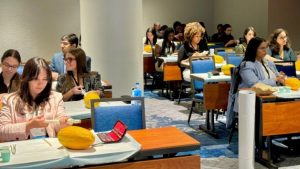
Clinical Skills – Manual Vacuum Aspiration (MVA) “Papaya” Workshop
The morning kicked off with a Manual Vacuum Aspiration (MVA) workshop, where a full room of 50 medical students learned the basics of a first trimester procedural abortion, using papayas to practice a simulation of the process. Fun fact: dragon fruit and even tomatoes can be used as uterine models! Drs. Aliye Runyan and April Lockley moderated the clinical skills session. If you’d like to experience an MVA workshop, we can help! Through the AMSA Repro Project, AMSA chapters and members can request support for virtual or in-person MVA workshops for their community.
Thought Provoking Panel Discussions
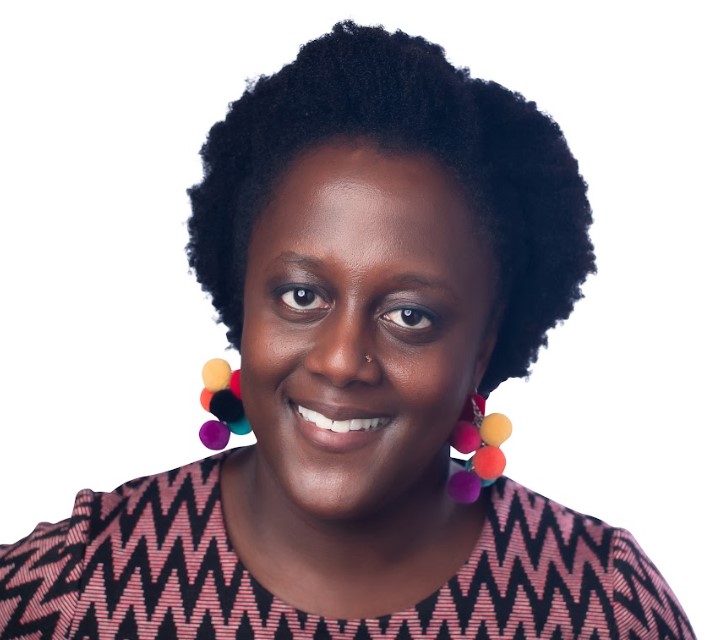 |
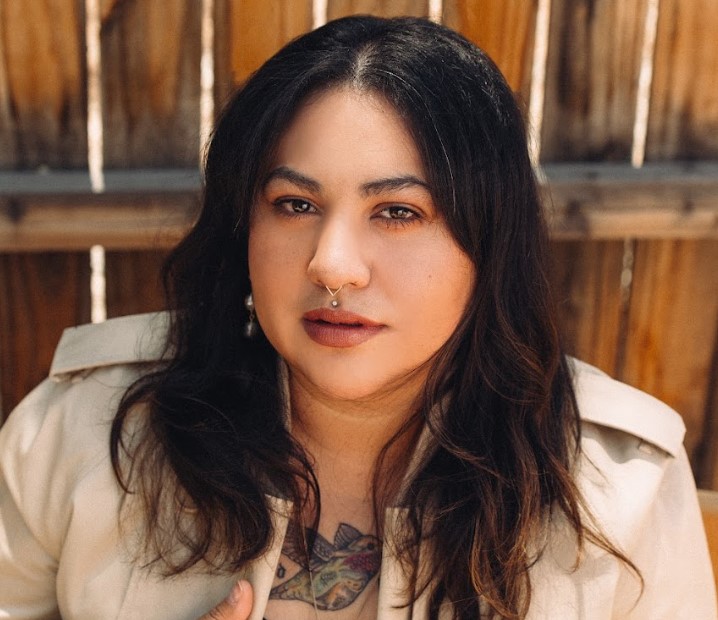 |
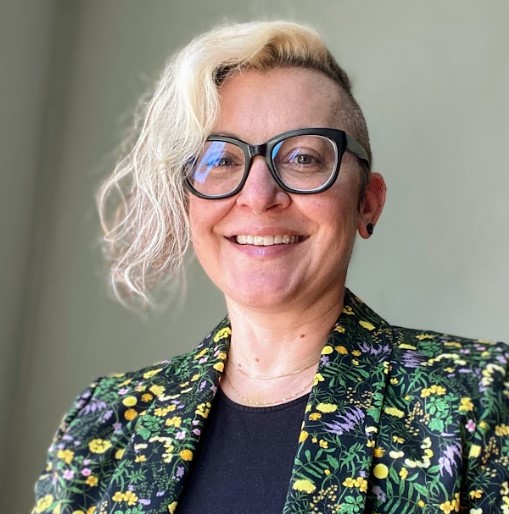 |
| April Lockley, DO Medical Director, Miscarriage & Abortion Hotline |
Rachael Lorenzo, MPA Co-Founder & Executive Director, Indigenous Women Rising |
Dani Behonick, PhD, MPH |
Claiming & Reclaiming Power: Enacting Bodily Autonomy & Asserting the Right to the Information & Resources Necessary for Reproductive Freedom
The early afternoon panel discussion focused on the current politicized attacks against bodily autonomy, especially related to abortion care, and how people are fighting back against these attacks. The universal human right to bodily autonomy is meaningful only if people have access to the information and resources necessary for them to enact their agency as autonomous beings. The panelists, Dr. April Lockley and Dr. Dani Behonick, spoke about the various channels of information and resources related to abortion, contraception, and birthing options – and the barriers to this information and resources – that impact people’s ability to control their reproductive destiny. The discussion included the essential channels of digital and online sources of information and support (such as apps), the critical necessity of abortion and midwifery funds, and self-managed abortion.
The Maternal Mortality Crisis: How Western Medicine’s Foundational Anti-Blackness & Anti-Indigeneity Harm Black & Indigenous Birthing People
The late afternoon session focused on major contributing factors to the maternal mortality crisis in the United States, namely, how systemic racism, misogyny, and anti-Indigeneity cause harm to Black and Indigenous birthing people. Dr. April Lockley and Rachael Lorenzo discussed their perspectives, both personal and professional, as witnesses and in several cases, recipients of the harm caused by medical providers. We discussed historical harms (unconsented experimentation, unconsented research studies), many of which are carried into the present – for example the health harms perpetuated by the Indian Health Services due to underfunding, lack of resources, and lack of cultural competency.
Period Pain Simulator Experience!
One of the biggest draws at the convention exhibit hall was the opportunity to get hooked up to the period pain simulator. 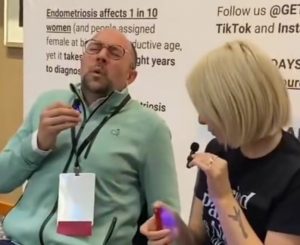
Developed by Somedays.com the period pain simulator is a device that works by sending small electrical impulses directly to abdominal muscles, causing it to contract in a similar way to how prostaglandins induce muscle contractions during menstruation. Period pain affects 80% of people who menstruate. Despite this staggering number, many people with period pain continue to have their pain dismissed and invalidated, and receive little to no support in places like schools or the workplace. The period pain simulator helps bring awareness to the frequent and sometimes debilitating pain that many people experience. And one of the goals with the period pain simulator is to shift culture towards a more compassionate and understanding future where people with period pain are believed and supported. Check out the videos on @getsomedays TicTok, including several videos from FP4C, one of which features AMSA’s own Vice President for Leadership Development, Trevor Lyford!
AMSA 29th Annual Poster Session
Reproductive Justice & Abortion-related Poster Awardees
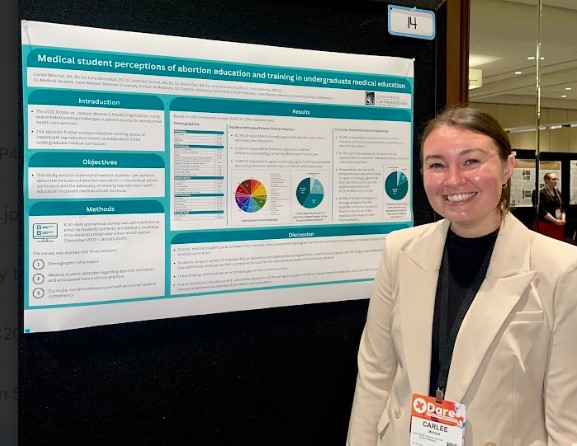 |
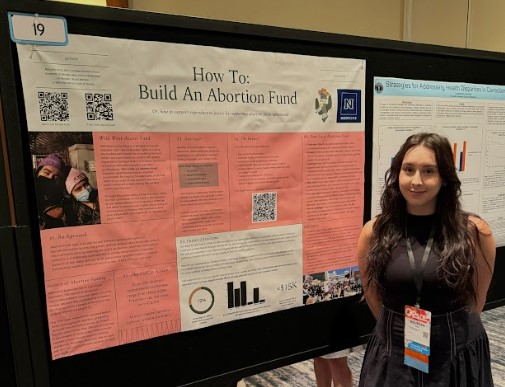 |
| Carlee Mitchell Case Western Reserve University SOM |
Maureen Scott University of Nevada Reno SOM |
Reproductive Justice & Abortion-related Poster Presenter Scholarship Recipients:
- Caroline Auxier, Touro University California COM
- Moyouri Bhattacharjee, SUNY Downstate Health Sciences University
- Shubhecchha Dhaurali, Tufts University
- Catriona Hong, University of Connecticut SOM
- Angel Ikoli, Avalon University SOM
- Mackenzie Lemieux, Washington University SOM
- Cordelia Muir, UNC Chapel Hill
- Catherine Nguyen, Touro University California COM
- Sarah Osborn, St. George’s University SOM
- Gayathri Pokala, Georgia Institute of Technology
- Ginikachukwu Uzoekwe, Richmond Gabriel University
Project Abstracts Booklet Coming Soon!
The Friday evening poster session featured over 160 posters, including over 20 posters showcasing the exciting contributions to abortion care research from medical students across the country and internationally. Students from states where abortion is banned/restricted (Ohio, North Carolina) presented additions to their medical curriculum, including one of our Repro Project category poster winners, Carlee Mitchell from Case Western University. Our second winner, Maureen Scott, a student at University of Nevada, started an abortion fund with a friend and colleague in law school. We are so proud of these incredible students who are making a difference in their universities and communities.
Explore the AMSA Reproductive Health Project
Find news, tips, tools, opportunities & more!
Sign-up Here for AMSA Repro Project Updates
